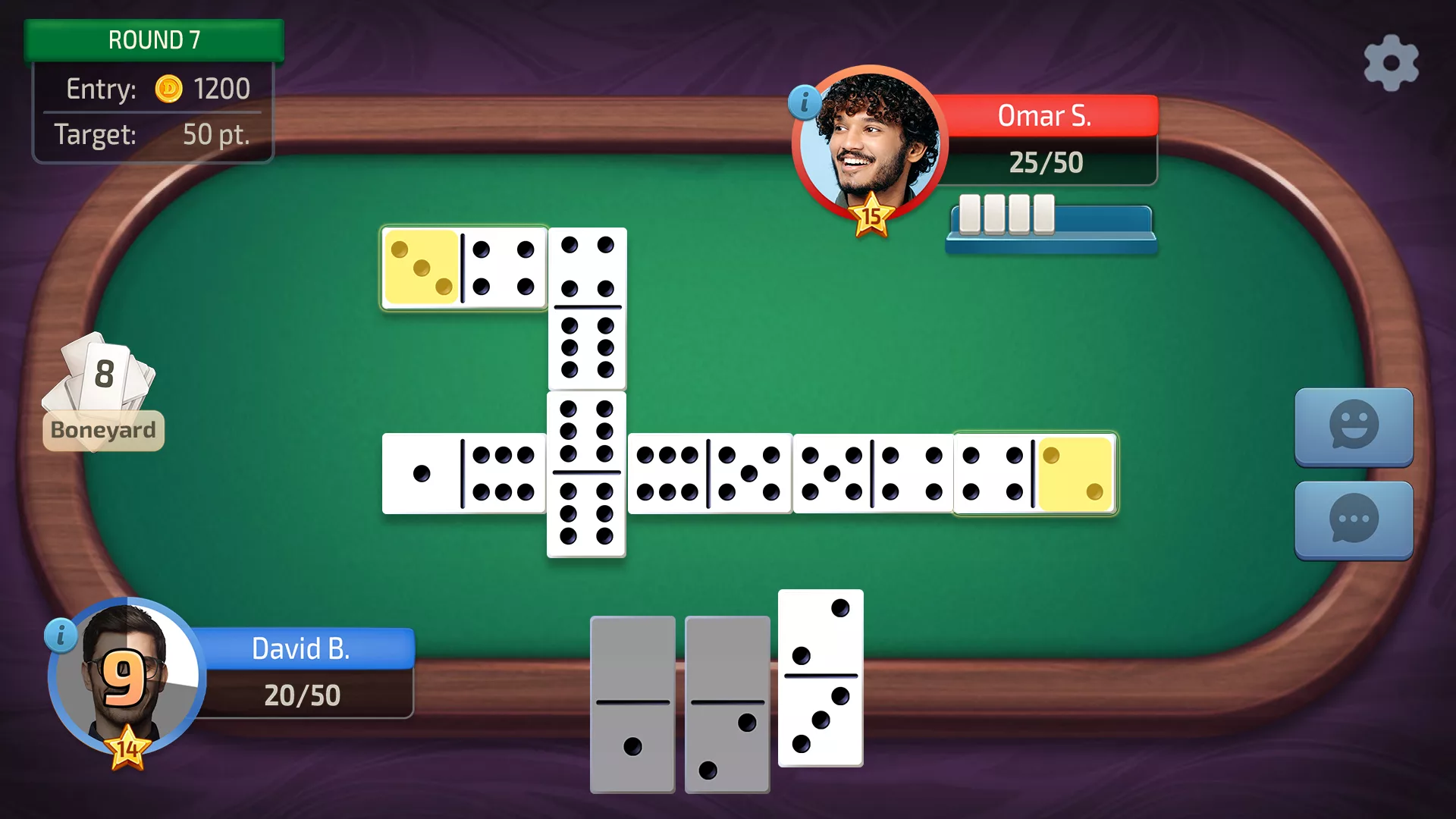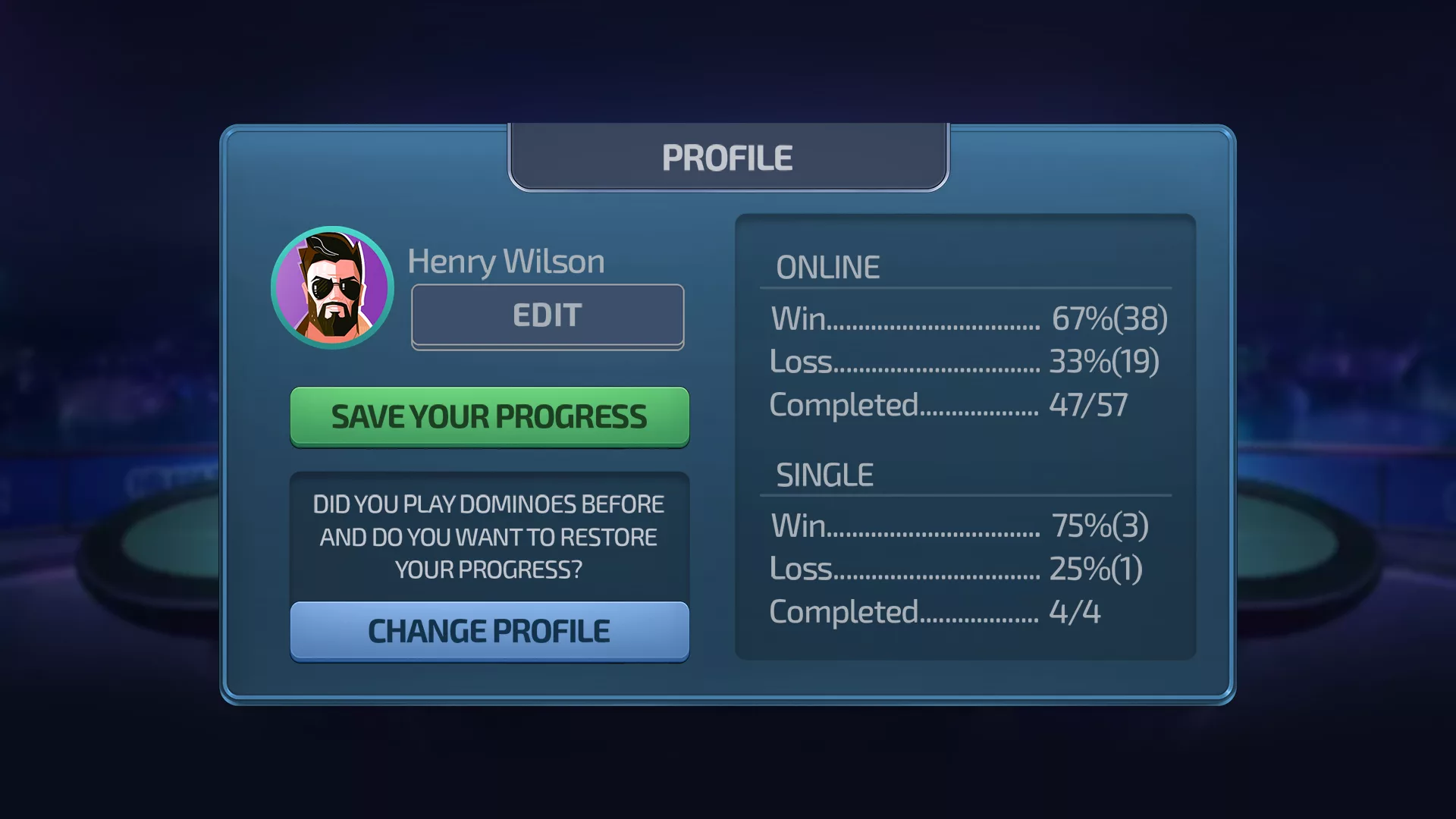Highlights
Industry:
Game development and publishing
Project scope:
- Transition an active game from the previous owner’s account to the client’s
- UI enhancement and new features to increase monetization
The Client
The client for this project is a US mobile games developer and publisher that makes family-friendly games for a worldwide audience, with millions of active users.
The client acquired an existing, active game called Domino Online for Android and iOS mobile platforms, with the intention of further developing and monetizing it under their own brand. However, the company needed additional expertise in a number of areas, such as transitioning a game to its own accounts and online PVP game design — so they came to XIM for help.
The Project
The project had two main goals: to smoothly transition the game from the previous company, keeping the existing user base, and to revamp it to increase monetization.
Project duration:
6 months in active phase
(+ 6 months of support)
Project team:
A total of 13 specialists, including 2 game designers and 3 developers
Project labor costs:
60 person-months in active phase (+ 20 person-months of support)
Technology stack:
Unity, Photon-server, .NET, C#, Python, MongoDB, Golang, MySQL, Nginx
1/2
The Solution
Forming the Team
Right from the get-go, the project appeared daunting: there were several technically challenging aspects, such as working with the Photon server required to run the game, and the project had to be delivered under a tight deadline — just 6 months.
XIM immediately put together a core team to start the project, subsequently building it up to 13 specialists — including game designers, developers, artists, VFX and QA specialists, and a project manager — with the relevant skills to handle all the project’s complexities. For tasks that required rare expertise, XIM’s HR team used a unique headhunting method to source the right people for the job from a pool of 55+ potential candidates.
Transitioning the Game
The first hurdle the team encountered was a problem with user identification when transferring the application in the AppStore from the previous company. The game was active, with players being able to log in with Facebook or Google and sync their progress across devices and platforms, so it was paramount not to bring it down or lose any user data in the transition process.
The team made improvements on the web server side and managed to shorten the user transition time to just two hours. There were also some problems with the stability of Photon applications, but despite the technical complexity of the task, the team quickly adapted, and the issues were effectively resolved.
Further Development
After transitioning the game, further improvements were made and new functionality added, including in-app offers and subscriptions. The team redesigned the UI, adding leaderboards and tutorials to attract more users. They also redesigned the ad-based monetization (both display points and ad display logic), integrated the game with the existing meta server and introduced various client-side modules to further increase the game’s revenue.
The Outcome
The game was successfully and smoothly transferred from the previous company with no losses in user data. It is now available worldwide in active, parallel development, with 1 million monthly users and a total userbase of 20 million people. As a result of XIM’s work on the game’s monetization, the income per user has significantly increased. XIM is in discussions with the client about further collaboration to introduce new features to Domino Online, and the client will be able to use the improvements made to the server side in the development of more multiplayer game projects.




